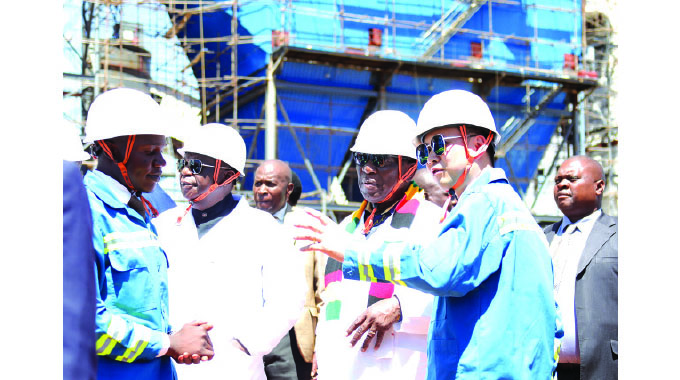Sky is the limit for Mnandi Mnandi

Karen Maturure
Correspondent
Madaulo Business Centre, Ward 3, Beitbridge. Deep in the heart of Beitbridge District in Matebeleland South Province is the bustling Mnandi Mnandi Processing Centre, an innovation and resilience project that is changing the southern landscape for a better future.
In English, Mnandi Mnandi translates to tasty, enjoyable and sweet; and this is an accurate representation of the products produced at Mnandi Mnandi Processing Centre.
The recently launched Mnandi Mnandi Centre is an initiative implemented by BIO-HUB Trust under the ZRBF Funded PROGRESS Initiative, located in Ward 3 Madaulo area in Beitbridge with the objective of strengthening household food security as well as resilience by commercialising NTFPs and adopting climate smart agriculture.
The Mnandi Mnandi Cooperative which is largely a women’s group (with 17 females and 6 men) commenced on March 20 2018 and is registered under the Ministry of Woman affairs, Gender and Community Development.
The decision to form this processing centre was made after the realisation that NTFP resources were an important source of livelihoods being underutilised in the backdrop of various challenges such as recurrent droughts, high rate of livestock poverty related deaths.
Before PROGRESS came to assist the group, they had limited and seasonal sources of income that were often affected by recurrent droughts.
When the rain came, it was often not enough for locals’ crops or enough to adequately feed their cattle.
“Fortunately we were introduced to Bio Hub Trust under the PROGRESS Consortium. A key milestone was the building of the Centre as we previously operated in an open space as we did not have our own building. They capacitated us on how our local natural resources could edify us. We also had exchange visits in other wards within the district as part of our look and learning process”, says Mr Singo the Mnandi Mnandi vice chairperson.
The group has also benefited from several other trainings including business management and resource sharing.
The group received trainings on how to make a wide range of products from their natural environment and they are now knowledgeable on many recipes that they can utilise for processing natural products for sale and to diversify diets at household level.
Some of the recipes have since been documented by BIO-HUB Trust in a recipe book.
The VSALs organised by the group and their garden have also given them greater freedom to choose what they want to feed their families or what business ventures they can benefit from.
Previously the group would only pick fruits and sell them at small profit margins, usually to middle men.
However, they are now able to get higher profits as they can now access wider markets after adding value to their products by processing and packaging them well.
The machinery that they received under PROGRESS have made all this possible.
“ . . . we would use stones to crack Marula nuts and this would be tiresome and time consuming whilst most of the nuts would end up being damaged.
However, through the PROGRESS Project we have received a diversified range of machinery including nut crackers, a hammer mill, oil pressers, peanut butter making machines, a delivery tricycle and other machines that make work easier and eliminate the dread and inefficiency of manual work”, added Mr Singo.
As part of the results of the PROGRESS initiative, they now also have an efficient solar system and a biogas digester hence they no longer regard trees as a sustainable source of energy.
Additionally, they no longer have to walk long distances to access clean water as they now have water closer to them in form of a solar powered borehole.
Overall, they are now more responsible in taking care of their natural environment and have engaged in tree planting activities and to date have planted over 400 trees.
“We are now a bustle of diverse activities including the processing of Marula kernels, Baobab, Mopane worms and indigenous vegetables using modern appropriate technologies purchased under the ZRBF funded PROGRESS project.
We have successfully been supplying products such as Baobab juice, Marula jam, Marula nuts, Marula oil, indigenous vegetables and mopane worms, packaged nuts, kernels, beans, indigenous fruits and vegetables back to the community in the ward and beyond”, added Mr Singo with an unmistakable hint of pride.
The Mnandi Mnandi Cooperative members continue to work together to take full advantage of available non timber forestry products offered by the natural environment that surrounds them.
For Mnandi Mnandi there is no doubt that the future is bright and the sky is the limit as they know how to thrive profitably in their local environment.







Comments